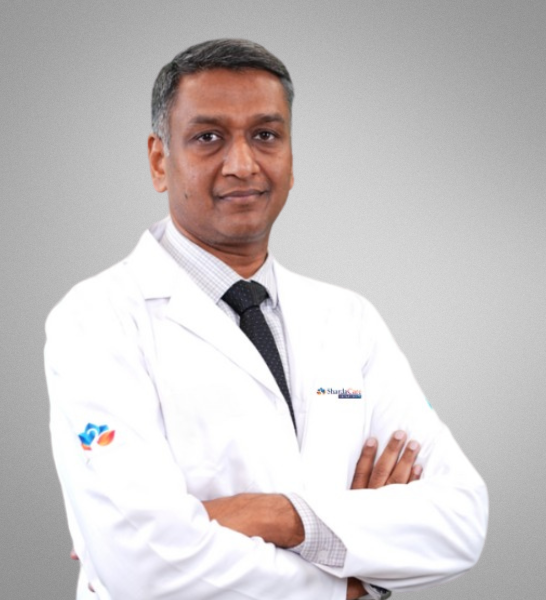
Eczema, or dermatitis, presents as a persistent skin condition marked by dryness, itching, and inflammation. Although it can manifest anywhere on the body, it's commonly seen on the face, hands, and feet. While not contagious, eczema can be discomforting and may lead to secondary skin infections.
This ailment comprises various types of dermatitis, each with distinct symptoms and triggers such as atopic dermatitis, photodermatitis, irritant contact dermatitis, and stasis dermatitis. Identifying the root cause is pivotal in preventing recurrent flare-ups.
Management typically involves a blend of moisturizers, topical corticosteroids, antihistamines, and lifestyle adjustments. Tailored treatments are essential, considering the eczema's severity and type. Addressing both symptoms and underlying triggers empowers individuals to effectively manage eczema and enhance their overall well-being.
Looking for an Expert
Sharda Care The Healthcity is home to some of the eminent Doctors in the world.
Book an Appointment














